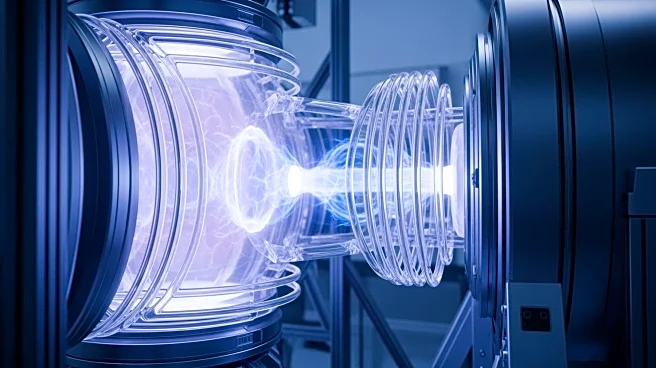What is the story about?
What's Happening?
New Line Cinema has announced the development of Mortal Kombat 3, following the delay of Mortal Kombat 2. Jeremy Slater, known for his work on Godzilla x Kong: The New Empire and Marvel's Moon Knight series, has been signed to write the script for the third installment. The announcement was made at New York Comic Con, although details about the storyline remain undisclosed. Mortal Kombat 2, which was initially set for release in October 2025, has been postponed to May 2026. The sequel will feature Martyn Ford as Shao Kahn and Karl Urban as Johnny Cage, with several cast members from the first movie returning.
Why It's Important?
The development of Mortal Kombat 3 signifies New Line Cinema's commitment to expanding the franchise, which has a dedicated fan base. The delay of Mortal Kombat 2 and the announcement of a third film could impact the film's reception and box office performance. The franchise's continuation is crucial for Warner Bros. and New Line Cinema, as it represents a significant investment in the action and fantasy genre. The involvement of Jeremy Slater suggests a potential for a fresh narrative approach, which could attract new audiences and maintain interest among existing fans.
What's Next?
With Mortal Kombat 2 set to release in May 2026, fans can expect promotional activities and trailers to build anticipation. The development of Mortal Kombat 3 will likely involve casting decisions and directorial announcements. The storyline may draw from the video games, particularly Mortal Kombat 3, which involves Shao Kahn's attempt to merge realms. The success of Mortal Kombat 2 will likely influence the production timeline and marketing strategy for the third film.
Beyond the Headlines
The Mortal Kombat franchise's expansion into multiple films highlights the growing trend of video game adaptations in Hollywood. This development raises questions about the creative challenges of translating interactive experiences into cinematic narratives. The franchise's success could encourage other studios to invest in similar adaptations, potentially leading to a broader acceptance of video game-based films.
















